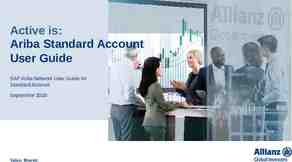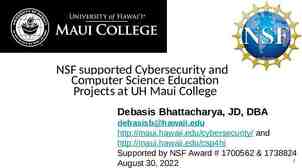The Medical Reserve Corps (MRC) Name of Presenter Organization Date
13 Slides4.14 MB

The Medical Reserve Corps (MRC) Name of Presenter Organization Date

What is the MRC? The Medical Reserve Corps (MRC) is a national network of volunteers, organized locally to improve the health and safety of their communities The MRC started as a demonstration project by the U.S. Department of Health and Human Services (HHS) in 2002 after the events of September 11 identified a need to organize and train medical volunteers to assist in emergencies In 2006, Congress passed the Pandemic and All-Hazards Preparedness Act, which formally established the Medical Reserve Corps “to provide for an adequate supply of volunteers in the case of a Federal, State, local, or tribal public health emergency” Today, the MRC network comprises approximately 200,000 volunteers in roughly 800 community-based units across the U.S. and its territories

What does the MRC do? MRC units engage in their local communities to improve emergency response capabilities, build community preparedness and resilience, and strengthen public health No MRC unit is the same – specific engagement activities vary by community need, volunteer skills and interest, and partner support

How do MRC units benefit the community? Bolster local public health and emergency response infrastructures by providing supplemental personnel Enable communities to meet specific health needs Give community members the opportunity to offer their skills and time to make their communities healthier and safer

Where are MRC units located? There are roughly 800 MRC units located across the U.S. and its territories, including: – 48 states – American Samoa, Federated States of Micronesia, Palau, Puerto Rico, and Northern Mariana Islands Size of MRC units ranges from fewer than 50 to more than 2,500 volunteers

Number of MRC Units Number of MRC Units by Region Data as of February 2021 250 200 150 100 50 0 195 119 91 54 57 65 52 36 55 41

Number of Volunteers Types of MRC Volunteers 120,000 100,000 80,000 60,000 40,000 20,000 0 82,578 49,091 25,291 1,403 Data as of February 2021 10,519 6,964 3,889 4,074 1,888 10,950 925 2,640

At a Glance: MRCs in the Community In the most recent MRC Network Profile, below are the types of emergency responses MRC units participated in. Natural Disasters Infectious Disease Outbreaks 68% 28% Foodborne Illness 3% Source: 2017 MRC Network Profile Human Induced / Civil Hazards Technological Hazards 12% 4% Hazardous Materials Spills 3% Other Emergencies 17%

At a Glance: COVID-19 Response Common MRC Missions 800,000 volunteer hours dedicated to COVID-19 response in 2020 Testing Epidemiology and Surveillance Medical Surge Community Screening Call Center Operations Behavioral Health Community Education Community Outreach Logistics Training Mass Vaccination

At a Glance: COVID-19 Response (cont’d) Number of MRC units activated Data as reported to the MRC Program Office Includes MRC units in 48 states, the District of Columbia, Puerto Rico, American Samoa, and the Northern Mariana Islands Data as of February 2021

At a Glance: 2020 Responses After an earthquake struck Southwest Puerto Rico, the MRC of Puerto Rico (PR) conducted shelter support, medical assessments, and community needs assessments of impacted populations In response to Hurricane Isaias, members of the Capital MRC (NC) set up a medical shelter for displaced nursing home and home health patients. In addition, the New Castle County MRC (DE) and Western Tidewater MRC (VA) supported shelters and Delaware County MRC (PA) assisted with an evacuation/reception center. MidCarolina SMAT (NC) also deployed its medical shelter support trailer to assist local response efforts After a derecho passed through Iowa and caused widespread power outages, volunteers with the Johnson County MRC (IA) made wellness check calls and in-person wellness checks on local community members with special medical needs. Grundy County MRC (IA) volunteers helped with recovery and clean-up after the storm MRC of Puerto Rico (PR) supports earthquake response efforts Capital MRC (NC) sets up a shelter in anticipation of Hurricane Isaias

At a Glance: 2020 Responses (cont.) MRC units in Louisiana, Texas, Alabama, and Hawaii responded to a series of hurricanes and tropical storms. Volunteers provided evacuation support, sheltering support, triage/first aid, medical needs tracking, and medical assessments, including COVID-19 screenings for evacuees Several MRC units in Arizona, California, Colorado, Nebraska, Oregon, Utah, and Washington State responded to wildfires and grassland fires. Volunteers provided evacuation and clean air shelter support, veterinary medical support, medical supply management, and responder rehab MRC units administered vaccinations in response to Hepatitis A outbreaks in communities across the country Several MRC units responded to winter weather events in early 2020, assisting at shelters and warming centers Alamo Area MRC (TX) volunteers respond to Hurricane Laura, providing medical assessments and COVID-19 screenings for evacuees

MRC Program Communications Visit the MRC website at https://mrc.hhs.gov Join the MRC Program Office’s One-way or Two-way Listservs: https://mrc.hhs.gov/pageViewFldr/MRCListservs Join MRC-TRAIN: https://www.train.org/mrc/ Like us on Facebook: https://www.facebook.com/medicalreservecorps Follow us on Twitter: @MRC ASPR or visit https://www.twitter.com/MRC ASPR To find an MRC unit near you, visit http://mrc.hhs.gov/FindMRC






